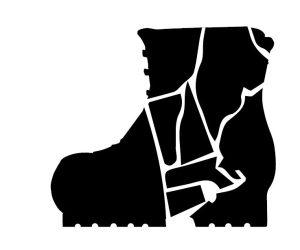Oct
04

Posted by Margot M on October 4th, 2024
Posted in: Funded Project
Tags: Boot Camp, nursing education, science librarians
Part of a blog post series from New England Science Boot Camp for Librarians scholarship recipients.

Logo for New England Science Boot Camp for Librarians
Christina Advento (Trinity Hall):
As a first-time attendee of the New England Science Boot Camp for Librarians, I was pleased to find that the event at UMass–Dartmouth was an invaluable and enjoyable learning experience. Throughout the week, I noticed that the issue of how to face both climate change and social injustice in the sciences continued to emerge. One topic from this year’s conference in which both these themes play a crucial role is Community Nursing.
Maryellen D. Brisbois, a professor from UMass-Dartmouth, gave a contextual talk called “Community Health Nursing on the Rise: Healthy Communities, Healthy Futures.” She focused on the rising and critical need for the community nurse, as public health practitioners continue to be in demand. Her focus went beyond the importance of acute care nurses, connecting this global need to problems such as health and mental health epidemics, poverty, and climate crises. Brisbois introduced two important public health initiatives: the UN’s Global Goals for Sustainable Development and the US Government’s Healthy People 2030. She demonstrated convincingly how health care is important on both an individual and community level, and how librarians can partner with their college’s health sciences department on topics such as Health Literacy, Cultural Competency, Mental Health Support, and Emergency Preparedness.
Afterwards, Monika Schuler, a Nurse Practitioner and Educator also from our host school, spoke about her research, entitled “Using Curiosity as a Catalyst for Change.” Dr. Schuler’s work focused on noticing the bias that experienced nurses can have against their patients who suffer from Substance Abuse Disorders. The overwhelming rise in opioid abuse of late has contributed to a negative stereotype among the medical community of such patients. This stigma often leads these individuals to shun regular medical care, causing further deterioration of their health, and necessitating more emergency hospitalizations. With almost 20 million adults suffering from the opioid abuse epidemic, Schuler wanted to teach her student nurses to be more empathetic to these individuals, overcoming the common myth that opiate use “was a rational choice, as opposed to a disease.” With a grant from the Foundation for Opioid Response Efforts (FORE), Schuler developed simulations to train nurses in scenarios that specifically dealt with Opioid Use Disorder patients. But first, she interviewed OUD patients and their families about what they want nurses to know about the challenges and needs of this disorder, including insurance barriers, medication, and stigmatizing language. This data informed the six different simulations she used, and her research found that such training increased empathy among nursing students.
These speakers allowed our science librarians to see the importance of the community nursing field, as well as a specific way that this field is helping to create a more just treatment of patients, which in turn can help in the fight against such a crippling societal problem as opioid abuse. Our new knowledge of the topics, challenges, and solutions in Community Nursing will aid in our support of our academic community.